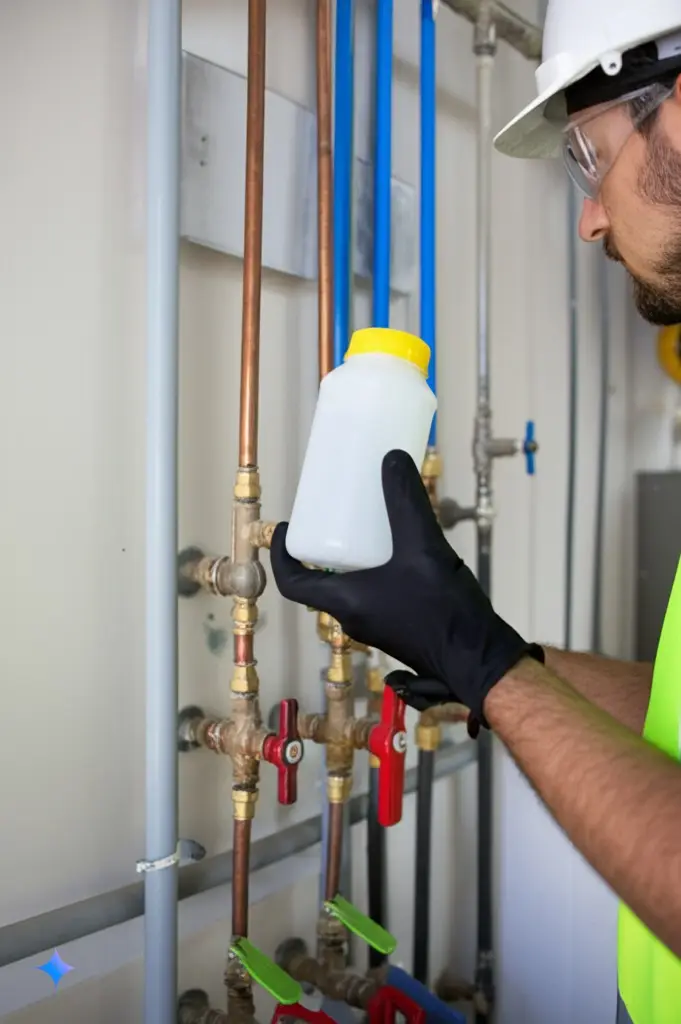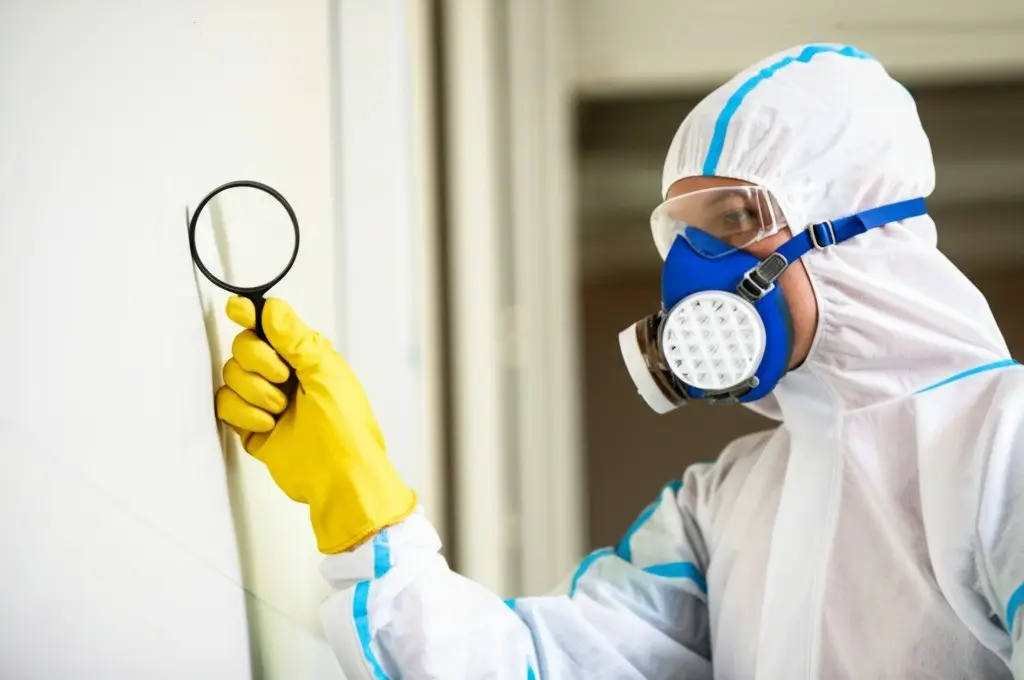Home / Noise Assesment
Legionella Testing & Management in Perth
Expert testing and management services to identify Legionella risks and protect your health and safety.
Why is Legionella Testing Essential in Perth, WA?
Legionella testing is crucial for all commercial and residential properties with water systems in Perth, Western Australia. Legionella bacteria can proliferate in various water sources, including cooling towers, hot water systems, spas, and air conditioning units. These potentially dangerous bacteria can cause Legionnaires' disease, a severe form of pneumonia, making proper management essential to protect occupants from serious health risks and ensure regulatory compliance.
Health Protection
Exposure to Legionella bacteria can cause significant health problems, with elderly people, smokers, and those with weakened immune systems at higher risk. Legionella pneumophila, the most common disease-causing strain, can lead to Legionnaires' disease, a potentially fatal pneumonia, or Pontiac fever, a milder flu-like illness. Identifying and managing Legionella hazards through regular testing is essential to prevent serious health effects. For more information, see the Australian Department of Health and the WA Health Department guidelines.
Regulatory Compliance
In Western Australia, various regulations govern the control of Legionella bacteria in water systems. Businesses, particularly those with cooling towers, healthcare facilities, aged care homes, hotels, and apartment buildings, must comply with strict Legionella management protocols. Professional Legionella testing helps ensure compliance with the Australian Drinking Water Guidelines, the Environmental Protection Act 1986 (WA), and guidelines from the WA Department of Health. Proper testing and documentation are critical for meeting legal obligations and avoiding penalties.
Property & Equipment Protection
Beyond health concerns, identifying Legionella risks is important for maintaining your property's water systems and overall value. Legionella contamination can indicate broader water quality issues, leading to system inefficiency and equipment damage. Biofilm formation, which harbors Legionella, can cause scaling and corrosion in pipes, heat exchangers, and cooling towers, leading to costly repairs and reduced system lifespan. For property transactions, Legionella testing provides transparency and protects both buyers and sellers.
Common Scenarios Requiring Legionella Testing:
- After commissioning new hot water systems or cooling towers.
- When water appears discolored, tastes unusual, or has an odor.
- Following plumbing work, water supply changes, or nearby construction.
- For properties using private wells, bores, or rainwater tanks.
- For commercial buildings with cooling towers or large hot water systems.
- For hotels, hospitals, aged care facilities, or multi-residential buildings.
- After periods of low occupancy or system disuse.
Protect your health and property. Professional Legionella testing provides accurate results and peace of mind.
Request Legionella Testing
Reliable legionella testing in Perth
Microbiological Testing
We analyze your water for Legionella bacteria, particularly L. pneumophila, the strain responsible for most Legionnaires' disease cases. Our NATA-accredited laboratory testing ensures the safety of your water systems and compliance with Australian health and safety standards.

Why Choose IQ Assured?
At IQ Assured, we provide more than just asbestos surveys; we deliver peace of mind. Our team of highly qualified and experienced professionals is dedicated to providing the most accurate, reliable, and legally compliant services in Perth.
NATA Accredited Laboratory
All testing conducted in NATA certified facilities ensuring accurate and reliable results
Fast Turnaround Time
Clear, detailed reports within 48 hours
Comprehensive Service Area
Servicing all Perth metropolitan areas with mobile sampling capabilities
Get a fast, Free quote
Frequently Asked Questions About Legionella Testing in Perth, WA
Why is Legionella Testing Important for Businesses in Perth?
Legionella testing is essential for businesses in Perth to protect the health of employees and customers, ensure compliance with regulations, and prevent outbreaks of Legionnaires' disease. Legionella bacteria can proliferate in building water systems, particularly cooling towers, hot water systems, and decorative fountains. Regular testing helps identify risks before they lead to disease outbreaks and demonstrates due diligence in building management.
What are the Key Legionella Regulations in Western Australia?
Legionella control in Western Australia is primarily governed by:
- The Australian Drinking Water Guidelines (ADWG), which include parameters for Legionella control in drinking water.
- Australian Standard AS/NZS 3666 (Air-handling and water systems of buildings), which outlines requirements for cooling towers and other water systems.
- The Work Health and Safety Regulations 2022 (WA), which require risk management for biological hazards including Legionella.
- Guidelines from the WA Department of Health for Legionella control in healthcare facilities and aged care homes.
- Guidelines from the Environmental Health Standing Committee (enHealth) for managing Legionella in building water systems.
What are Common Legionella Risk Factors in Perth?
Common Legionella risk factors in Perth include:
- Water Temperature: Water maintained between 20°C and 50°C, which is ideal for Legionella growth.
- Stagnation: Water systems with areas of low flow or that are used infrequently.
- Biofilm Formation: Development of biofilms in pipes, tanks, and cooling towers that can harbor Legionella.
- Sediment and Scale: Accumulation that provides nutrients for bacterial growth.
- Inadequate Maintenance: Poorly maintained water systems, particularly cooling towers and hot water systems.
- Climate Factors: Perth's warm climate can accelerate bacterial growth in inadequately controlled systems.
- Building Age: Older buildings with complex plumbing systems and potential dead legs or blind ends.
What Does Professional Legionella Testing Involve?
System Assessment
Thorough inspection of water systems to identify risk factors, including temperature profiling, assessment of system design, and identification of potential areas of stagnation or biofilm formation.
Sample Collection
Collection of water samples from strategic points in your water system, following strict protocols to ensure accuracy and prevent cross-contamination.
Laboratory Analysis
Analysis of water samples by our NATA-accredited laboratory using approved culture methods to detect and quantify Legionella bacteria, particularly L. pneumophila serogroup 1.
Risk Management Plan
Development of a comprehensive Legionella risk management plan, including control measures, monitoring protocols, and corrective actions based on test results and system assessment.
How Often Should Legionella Testing Be Conducted?
The frequency of Legionella testing depends on several factors, including:
- System Type: Cooling towers typically require more frequent testing (monthly to quarterly) than hot water systems (quarterly to annually).
- Risk Assessment: Higher-risk systems (e.g., in healthcare facilities or those with a history of contamination) require more frequent testing.
- Regulatory Requirements: Specific regulations may mandate testing frequency for certain facilities or system types.
- System Changes: Any modifications to the water system should trigger additional testing.
- Seasonal Factors: More frequent testing may be necessary during warmer months when bacterial growth increases.
As a general guideline, quarterly testing is recommended for most building water systems, with monthly testing for high-risk facilities or as required by regulations.
What Types of Buildings Need Legionella Testing?
Buildings with higher Legionella risk that should prioritize testing include:
- Healthcare Facilities: Hospitals, medical centers, and clinics.
- Aged Care Homes: Where residents are particularly vulnerable.
- Hotels and Accommodation: With multiple showers and complex water systems.
- Large Office Buildings: Especially those with cooling towers.
- Recreational Facilities: Swimming pools, spas, and leisure centers.
- Educational Institutions: Schools, universities, and childcare centers.
- Industrial Facilities: Particularly those with cooling towers or process water systems.
- Apartment Buildings: With centralized hot water systems.
Can you help develop a Legionella Risk Management Plan?
Yes, IQ Assured provides comprehensive Legionella risk management plans tailored to your specific water systems. Our plans follow Australian Standards (AS/NZS 3666), Western Australian regulations, and international best practices. These plans include system assessment, control measures, monitoring procedures, corrective actions, and documentation requirements to ensure ongoing Legionella control and regulatory compliance.
Have more questions about Legionella testing for your building in Perth?
Contact Our Experts
